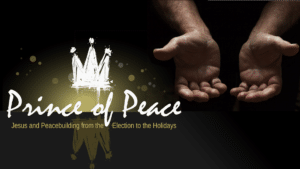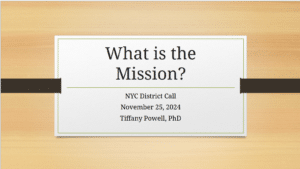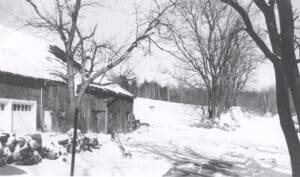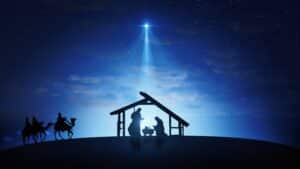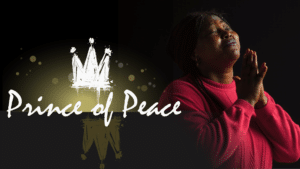Staff On-Boarding Guide
Staff On-Boarding Guide walks new staff through a process of introduction and integration into the Camp Deepark Staff Community. This process is for all year-round staff hired outside of Summer Camp — which has it’s own week-long intensive on-boarding experience called Summer Camp Training.
The process introduces the mission, community, culture, and workflows of Camp so everyone is clear on expectations, best practices, and our community’s shared culture.
This On-Boarding guide follows the Camp Deerpark Mission Statement as the outline for discovering Camp and thinking through one’s own role and contribution to our mission.
Camp Mission Statement
Camp Deerpark is a ministry of the New York City Mennonite Churches – a community of Christ where children, youth, and families from all cultures are welcomed to fellowship together in the serenity of God’s creation.
Camp’s mission statement can be found at Mission and Values. This page includes a brief interpretation of the mission and core values that outline how we apply our mission.
Question: What parts of the Camp mission statement stand out to you the most?
What is Camp? (The Basics)
This section explores the basics about Camp using the first line of the mission statement:
Camp Deerpark is a ministry of the New York City Mennonite Churches – a community of Christ
“Camp Deerpark”
- Camp Deerpark was founded in 1969 with the purchase of the original 277 acres of the Brandt ‘s Pleasant View farm and resort by the “Mennonite Action Committee” of the Mennonite Churches of New York City with help from friends and collaborators in Pennsylvania.
- The land was purchased as a Camp and retreat specifically focused on serving urban churches and people, but as a collaborative project based on the work of both urban and rural people.
- Camp now includes 29 buildings and 395 acres.
- DO: A tour of Camp grounds and facilities.
- More information on the history of Camp is available:
- History of Camp Deerpark website page.
- Forever God is Faithful book (available online, or in print at the office)
- LEARN: About The Grounds to learn what things are called and get maps for finding things and getting around.
- The Grounds (including all land and buildings) are managed by the Facilities Department at Camp and are a major area where volunteers are engaged at Camp.
- SHARE: The Staff Camp Details with your family and friends.
- Guidelines for use of Grounds:
- Camp employees are encouraged to enjoy The Grounds — the land and buildings of Camp — as a blessing and grace-filled ministry space.
- Use of residential buildings are governed by the Housing Policy
- Use of all guest-areas, including non-resident buildings, must not interfere with the guest experience, program and must keep the area in a guest-ready state.
- Natural areas and creatures should be enjoyed according to Camp’s Stewardship principles. Ask what these are if you don’t know. Hiking, biking, and wildlife watching are always encouraged. (Ask about hunting, vehicle and ATV use, etc.)
- Employees may make arrangements for the visit of family and friends, including use of guest facilities not simultaneously needed for programming (generally for free). Ask the Administration and/or Guest Services.
- Please check with the Administration for use of grounds and amenities in the guest area for specific policies (such as Pool Use Policy). If you’re using it for the first time: it’s good to ask somebody what the policy is.
- RELATED: Guidelines for use of Camp Equipment (vehicles, machines, tools, etc.):
- All Equipment must be operated in a safe and responsible manner avoiding injury to all persons and destruction to property and nature. Equipment must be maintained in good working order for safe operation and to maximize its service life as good Stewardship.
- Camp Equipment’s primary purpose is to support the mission and program of Camp. Additionally, it can be used to benefit of employees so long as: (1) it doesn’t interfere with the primary purpose through unavailability, breakage, or interruption, (2) Camp is fairly compensated for costs associated with this use, (3) the operator agrees to Facilities terms for proper care and maintenance of the Equipment.
- Use of all Equipment requires valid licensing when required by law (for example a drivers license is required to operate cars), and training and permission of Supervisory staff whether for employment or personal use. ALWAYS ask first. Age restrictions apply for minors on some types of equipment.
- Rental or fees-for-use may apply in cases where equipment is not used for employment or volunteer activities benefiting Camp.
- Personal use of vehicles outside of Camp are decided on a case-by-case basis and require per-mileage compensation unless otherwise authorized by a Department head or the Administration. Employment use of a vehicle requires permission from a Supervisor and coordination with the Facilities Director who is responsible for the CDP fleet is mandatory.
- ATVs, Tractors, and motorized equipment are NOT available for recreational use: ONLY work and volunteer activities!
- Motorized vehicles and equipment — even privately owned — are prohibited for recreational use on woods roads and trails. Bikes (including Class 1 e-Bikes) and human powered vehicles are allowed on woods roads and mutli-use trails.
- Breakage and wear-and-tear of any Equipment should immediately be reported to Facilities along with any injury or damage to property resulting from its operation. We’ll do our best not to embarrass or berate the responsible party, but we need to know so the Equipment can be repaired and maintained in safe and working condition.
Questions: Have you ever lived in a rural/mountain setting before? Have you been a guest or staff member at camp? What do you think are the pros and cons?
“a ministry”
- The word ministry simply means service. Our focus is centered on serving people, especially those who are served by our Owner Churches. Ministry also means serving people as service to God (Mt 25:31-46; Col 3:17) and serving people with God (Jn 5:19, 15:5; Phil 2:13). The first consideration of ministry is how to bring God’s grace into other people’s lives, not how to advance our own interests, compete against others for our advancement, make a profit, or maintain ourselves without cost or risk.
- READ: Camp Deerpark Core Values on our Mission and Values page which describes the culture how we serve at Camp.
- We encourage employees to develop and use Camp as a jointly-stewarded ministry platform and seek collaboration with all employees to create programming that advances discipleship to Jesus, pursuit of God’s mission, and the good of the church and humanity.
Questions: Who do you most want to serve as your work for Camp? What’s your plan to grow and maintain an attitude of service for and with Jesus?
“New York City Mennonite Churches”
- New York City: Camp represents the ministry of a particular people in a particular place as a unique here-and-now revelation of God (Acts 17:26-27). We are blessed to be in the context of New York City and see our task as contextualizing the Gospel of Jesus as a seed planted in the this particular soil of people and culture.
- Mennonite: can refer to both a cultural/ethnic identity and a theological movement within the “Radical Reformation” or “Anabaptist Movement”. While Camp celebrates the cultural identity, along with all culturally identities, as it is represented in the diversity of our people, we emphasize the theological movement in our values and programming. This theological movement has the following distinctives:
- Direct, personal, voluntary, and conscious commitment to follow Jesus including baptism.
- Separation, with dialog, between the Kingdom of God and the kingdom(s) and systems of humanity.
- Peace and peace building as the responsibility of all Jesus-followers.
- Discipleship as central to Christian practice, life, and community.
- Active experience of the Holy Spirit in the context of community.
- Simplicity, stewardship, and generosity as Christian disciplines.
- For more information see: Confession of the Faith in a Mennonite Perspective
- Camp is a member organization of both the Lancaster Mennonite Conference and Atlantic Coast Conference of Mennonite Church USA based on the affiliation of our Owning Churches.
- Because Camp is Mennonite, and we believe in a person’s choice when following Jesus, we don’t force or require employees to be or become Mennonite (or even Christian, though they must agree to Christ-based conduct). We also believe Christ compels us to invite in others to see the witness of Jesus in our lives and build peace with them — including our fellow employees.
- Our government structure — especially our Board of Directors and Administrators — maintains the Mennonite characteristics of our ministry in tight cooperation with our Owning Churches.
- About 24-27% of our Retreat usage is by our Owning Churches — the rest is extended to other Christian ministries with few barriers or conditions as a grace of Christ, service of the Kingdom, and peace building practice.
Questions: What is God doing placing you right here and right now at Camp? What do you identify with from the Mennonite theological movement and what might be different for you?
“a community of Christ”
- Camp is a community that is a work-in-progress where people relate lovingly to each other while serving an identity and purpose greater than the individual members. This differs from a public, which is a group of people who serve the purpose and interests of the individual members. This means we sacrifice for the good of all and receive the benefit of care from all — and, even more — to advance the Kingdom, which is the greatest good for all.
- As a community of Christ, we are disciple’s of Jesus called to join, as a matter of first allegiance (Mt 10:38, 16:24; Lk 14:26-33), his mission and movement (Mt 18:18-20) as the best way to be human and love others (Jn 13:34-35).
- Camp, in partnership with the NYC LMC District churches, is developing a Discipleship Platform called The Journey Map that helps people talk about their spiritual journey. This allows us to take action for Jesus together, train and develop skills, and focus our gifting on glorifying God.
- SHARE: Camp Contact List (to protect contact details, a print-only version is available for this document)
- READ: Employee Code of Conduct
- READ & Sign: Housing Policy (if applicable)
Questions: What does community mean to you? How do you view discipleship to Jesus? What’s your plan to grow as a disciple while at Camp? How do you feel about the Code of Conduct and other policies?
What does Camp do? (Our Work)
“where children, youth, and families”
- Who do we serve? A basic outline of the groups we serve and the associated programs:
- Children. Programs: Children’s Summer Camp
- Youth and Young Adults. Programs: Teen Discipleship (Summer Camp), Teen Camp, Peace Camp, Young Adult Staff Discipleship
- Families. Programs: Family Camp, Family Retreats, Reunions
- Churches. (full of children, youth, and families) There are two categories of churches we serve and serve with: Owner Churches and User Churches. Programs: Church Retreats, Leadership Development Programs (Pastors Retreat, etc.)
- Summer Camp slogan — Empowering Youth the Serve Christ in the City
“all cultures are welcomed“
- The Five Domains: Where does culture fit in?
- Cultural Diversity – Camp enjoys all the cultures of the New York City metro region and also the cultures of the “Pennsylvania Dutch” through our connection to the Mennonites in central Pennsylvania.
- Language: Camp’s owning churches speak English, Spanish, and Garifuna in their services, but our users churches also speak Chinese, Korean, Hindi and others. Some of our volunteers speak Pennsylvania German or Swiss German (in Amish and Mennonite communities).
- Geography: urban-suburban-town-rural, national region, neighborhood
- Social Categories: sex/gender, race, orientation, class, age, etc.
- What does it mean to have Intercultural Competence or have Intercultural Skills?
- Conflict resolution & Grievance process
“fellowship together“
- Gifting
- Camp Departments (org chart)
“the serenity of God’s creation“
- Stewardship
Share:
What Are You Tapped Into?
Yesterday we began tapping maple trees, officially opening maple syrup making season at Camp Deerpark! Last year, the transition kept us from producing syrup, so it feels great to be back to it. Starting off, however, has been a bit of a challenge since things are pretty arctic around here. The entire ground is covered…
What Does it Mean to be Spirit-Led with Pastor Mark Perri
One small contribution I can make is to share story with you. This could be valuable in several ways: First, I’m coming to the Mennonites from the outside — from non-denominational GenX “simple/ organic/ emergent church“. Sometimes people coming from outside-in have a helpful perspective for those trying to move from inside-out. Second, as an…
2025 NYC LMC District Call Schedule
Mark these dates in your calendar if you’re part of the NYC LMC District and want to attend the English-language fellowship and resourcing calls led by Bishop Hyacinth Stevens: January 27th – 6:30 PM February 24th – 6:30 PM March 31st – 6:30 PM April 28th – 6:30 PM May 19th – 6:30 PM June 30th…
Winter: Life Under the Surface
On the surface, winter with its cracking and cold seems like the enemy of life. Everything sleeps as though dead, and Camp — quiet and empty — sits waiting. But under the surface, winter is revealed to be a friend to life, not an enemy. In the deep frost, God opens the soil for Spring’s…
Peace Making Presents
This is Session 4 of the Prince of Peace: Jesus and Peacebuilding from the Election to the Holidays webinar series. Advent celebrates the central fact that God began building peace with us by giving a Gift. Following this example, gifts are a powerful tool for peacebuilding in our lives, relationships, and organizations. We’ll explore how…
Pain and Need Aren’t Partisan
This is Session 3 of the Prince of Peace: Jesus and Peacebuilding from the Election to the Holidays webinar series. (Click here to sign up for session invites.) Sometimes people seem so different from us, we automatically assume we can’t connect. Or, we tried to connect on some level, but it quickly became way too…
What is A Mission Statement?
On the LMC NYC District call this month, Dr. Tiffany shared critical information on what is and what is not a mission statement. This is critical as we think about moving the congregations in our district forward towards mission, optimize the mission already underway, and align together on the LMC mission as district churches. In…
Advent Calendar
Count Down the Days to Christmas with Camp! Jesus is the center of our Camp community. Let’s celebrate together the coming of the One who brings peace and salvation and life everlasting to humanity. We’ll be posting each day to Facebook and Instagram stories, but you can get our daily post in your email inbox!…
A Spirit-filled Christmas: The Joy in Judgement
The end of this week (Black Friday) marks the beginning of the Christmas season for many. (Though the big-box retailers had stuff out before Halloween, can you believe it!?!) For our culture, this season is a time of Joy. We gather for feasting and presents and the delighting of children. And despite the growing chill…
From Inner Peace to the Holiday Table
This is Session 2 of the Prince of Peace: Jesus and Peacebuilding from the Election to the Holidays webinar series. (Click here to sign up for session invites.) This session is about what we do when the people around us challenge our peace. It requires us to draw on something deeper in order to continue…
- « Previous
- 1
- 2
- 3
- 4
- Next »



